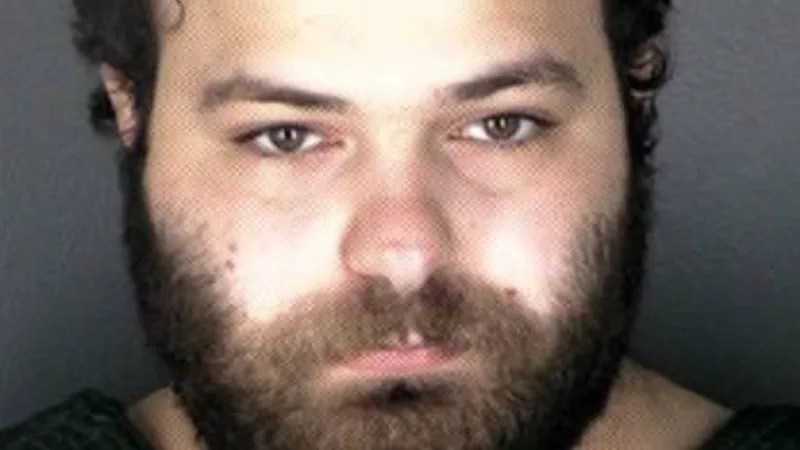
Michael Roberts

Audio By Carbonatix
The man accused of killing ten people at the Table Mesa King Soopers in Boulder is heading to trial after a preliminary hearing on Tuesday, November 14, ended with enough evidence being shown to allow the mass shooting case to go forward.
Ahmad Al Aliwi Alissa, who is charged with more than 100 counts of first-degree murder, attempted murder and other various charges related to the 2021 massacre, entered a plea of not guilty by reason of insanity during the hearing in Boulder County District Court.
The case had been stalled for two years after Alissa was found mentally incompetent and put on the state’s backlog for restoration services because of delays at the Colorado Mental Health Hospital in Pueblo. Alissa, who has schizophrenia, was eventually found competent in October.
“The court will immediately order that you be examined by one or more psychiatrists to be appointed by the court,” District Court Judge Ingrid Bakke said at Tuesday’s hearing.
Bakke set Alissa’s bail at $100 million after Boulder District Attorney Michael Dougherty had argued for an even higher number.
“In other murder cases in this jurisdiction, and elsewhere in the state of Colorado, courts have been setting bond, generally speaking, at $10 million in murder cases,” he said. “This case has ten victims of murder. Also, the attempted-murder counts. The defendant is a danger to the community. … I would ask the court to set a bond of at least $500 million. I was actually going to ask for $1 billion.”
Alissa’s defense, headed up by public defender Kathryn Herald, called Dougherty’s request “simply outrageous” before Bakke decided on the $100 million number.
Before the judge’s decisions came down, new details of what happened on March 22, 2021, emerged.
“Largely, the victims of murder were shot repeatedly,” Boulder police detective Sarah Cantu, who is the lead investigator on the case, testified. “There was not indiscriminate shooting. They were identified and pursued by the shooter, who moved quickly and fired repeatedly at them.”
Cantu described how Alissa had a Ruger AR-556, which she described as an “AR-style pistol,” as well as a handgun, though investigators don’t believe he ever discharged the handgun. Cantu recounted Alissa’s alleged actio

The booking photo for accused Boulder King Soopers shooter Ahmad Al Aliwi Alissa.
Boulder Police Department
ns that led to each victim’s deaths in the ten murder charges.
It only took 69 seconds for his first eight victims to be killed, Cantu said.
Alissa is also accused of attempted murder for another fourteen people who were shot during that time frame but survived.
The ten people who died are Denny Stong, Neven Stanisic, Rikki Olds, Tralona Bartkowiak, Teri Leiker, Eric Talley, Suzanne Fountain, Kevin Mahoney, Lynn Murray and Jody Waters. According to Cantu’s testimony, Alissa targeted people who were moving and ignored those who remained still or were lying on the ground.
“There were people hiding within the shelves,” Cantu said. “There were people hiding in the checkout stands, just laying there. There were people in the pharmacy – both back behind the pharmacy and in the clinic area of the pharmacy. There were people upstairs in the offices and in the employee area, and there were people in the dairy section and in the back area of the store, in a cargo vehicle back there.”
As for the attempted-murder charges, Cantu described how they are in reference to people who were in the line of fire when the ten murder victims were killed. Investigators were able to identify some of the attempted-murder victims by tracing the path of bullets based on the damage done to barriers erected to control the spread of COVID-19.
“This was during COVID, and so the checkstands were separated by plexiglass partitions, and there were bullet holes through the partitions nearby,” Cantu explained.
While investigators did not find any evidence to suggest a specific motive for the shooting, Cantu noted that they did find evidence showing that Alissa allegedly prepared to commit a mass shooting in the months leading up to his March 2021 massacre, such as a trip to a shooting range and notes found on his phone with tips on how to alternate between running and shooting a gun.
There was no proof of any connection between Alissa and his alleged victims discovered during the investigation, Cantu added.
The defense on Tuesday tried to bring up Alissa’s mental state, with Bakke repeatedly sustaining objections from the prosecution that it was not relevant to the preliminary hearing, which is only designed to determine whether prosecutors have enough evidence to move forward.
“As you consider whether there’s sufficient evidence to demonstrate he acted with intent is that, with one exception, he shot every victim multiple times,” DA Dougherty said in his closing statement. “It speaks to his brutality, but also his aim, focus and intent on that day.”
Alissa now heads back to the state mental hospital in Pueblo for an evaluation of his mental state, which must be completed by January 8, 2024; a status conference is scheduled for January 12. The trial is set to begin the week of August 12, 2024.